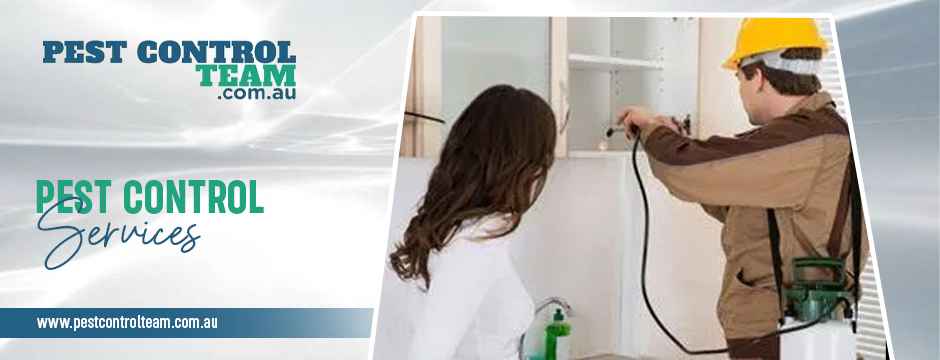Pest infestations can cause significant damage to homes and businesses, posing health risks and structural concerns. Whether it’s rodents, termites, cockroaches, or other pests, it is crucial to stay ahead with preventive pest control measures. However, many homeowners and business owners often wonder how frequently they should schedule pest control services to maintain a pest-free environment.
The frequency of pest control treatments depends on several factors, including the type of pests, location, and property conditions. Some properties may require monthly treatments, while others can maintain a pest-free status with quarterly or biannual services. Understanding the right schedule can help you prevent infestations before they become serious, saving you time, money, and stress. This blog will provide expert insights into determining the ideal pest control schedule, ensuring your home or business remains protected year-round.
Factors Affecting Pest Control Frequency
Type of Pest
Different pests require different treatment frequencies. Here’s a general guideline:
- Rodents: Monthly or bi-monthly inspections and treatments, as they reproduce quickly and can spread diseases.
- Termites: Annual inspections and treatments as needed to prevent structural damage that can compromise the integrity of your property.
- Cockroaches: Monthly treatments, especially in high-risk areas like kitchens and basements where they find food and shelter.
- Ants: Quarterly treatments, with additional services if an infestation occurs, as ants can quickly establish colonies in hidden areas.
- Mosquitoes: Seasonal treatments during warmer months to reduce breeding populations and protect against vector-borne diseases.
- Bed Bugs: Immediate treatment when detected, followed by follow-up visits to ensure complete eradication and prevent re-infestation.
Property Type and Location
Your property’s location and structure also play a role in determining how often pest control services are needed:
- Urban Areas: Higher pest activity due to dense populations and waste disposal, requiring more frequent treatments.
- Rural Areas: More exposure to wildlife pests such as rodents, requiring periodic inspections.
- Apartments & Condos: Shared walls and communal areas mean pests can spread quickly, necessitating regular treatments.
- Businesses & Restaurants: Monthly pest control is often required due to food storage and health regulations, ensuring compliance with safety guidelines.
- Homes with Gardens: Yards and outdoor spaces can attract insects and rodents, increasing the need for scheduled pest control.
Climate and Seasonal Changes
Pests have seasonal activity patterns that affect infestation risks:
- Spring & Summer: Insects like ants, mosquitoes, and wasps thrive in warm weather, making these months crucial for pest control.
- Fall & Winter: Rodents seek shelter indoors as temperatures drop, increasing infestations and the need for proactive measures.
- Year-Round Protection: Properties in humid regions may require constant pest control to combat persistent threats like termites and cockroaches.
Previous Infestation History
If your home or business has had past pest problems, preventive treatments should be scheduled more frequently. Recurring infestations often indicate underlying issues, such as structural vulnerabilities or nearby pest populations, that need consistent monitoring and treatment.
Recommended Pest Control Services Schedules
Monthly Pest Control
Ideal for:
- Restaurants, hotels, and businesses with high health standards must comply with food safety regulations.
- Homes with severe pest infestations, where immediate and continuous treatment is required to eliminate the problem.
- Properties in pest-prone areas (e.g., humid climates or near bodies of water), where insects like mosquitoes and termites thrive.
- Homes with pets, such as fleas and ticks can be ongoing concerns that require frequent control measures.
Bi-Monthly Pest Control
Best for:
- Homes that experience occasional pest activity but do not require aggressive intervention.
- Businesses with moderate pest risks, such as office buildings are not directly involved in food handling.
- Preventive bed bug control services to keep common pests at bay and ensure early detection before infestations grow out of control.
Quarterly Pest Control
Recommended for:
- Most residential homes with minimal pest history, as quarterly treatments provide sufficient protection.
- Routine maintenance to prevent infestations before they start, reducing the need for emergency treatments.
- Businesses that do not handle food directly but want consistent protection to maintain a pest-free environment.
Annual Pest Inspections and Treatments
Suitable for:
- Termite inspections and treatments are essential for properties with wooden structures.
- Homes in low-risk areas with no previous infestations, where a single annual check-up is sufficient.
- Properties that already have preventive measures in place, such as well-sealed entry points and regular maintenance.
Conclusion
Determining how often you need pest control services depends on multiple factors, including the type of pests, location, and previous infestations. Monthly treatments are ideal for businesses and high-risk properties, while quarterly or bi-annual treatments work well for most homes. Regular pest control not only prevents costly infestations but also protects your property, health, and overall peace of mind.
For reliable and professional pest control solutions, visit the Pest Control Team. Our expert team provides customized treatments to keep your home and business pest-free year-round. With our services, you can keep your homes and offices pest-free all year long.


